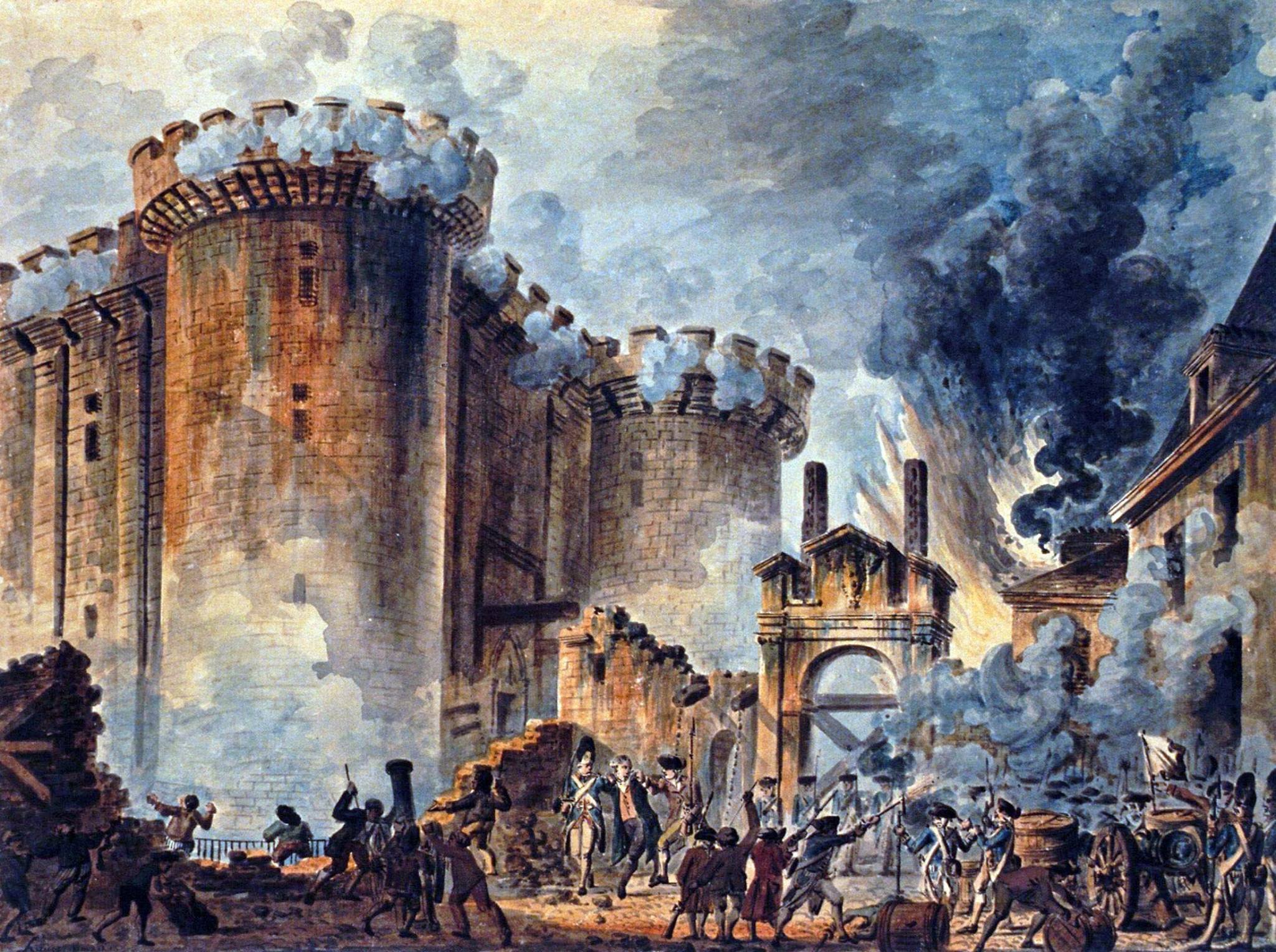
In honor of France’s Bastille Day today, her day of national independence, I am adding endnotes for the Revelation 11:8-14 chapter, to the website today.
Bastille Day is the day, in 1789, when the Parisian mob stormed the Bastille, the royal prison fortress, took it over, and freed the prisoners. It was a turning point in their grievances which marked the true start of the French Revolution. Why were they rioting?
“The peasantry, on the other hand, were the burdened class. … The Church added her claims—her tithes … and the endless fees and money payments, which made her so obnoxious. Bishops and abbots, in France as in Germany, had large estates as well as tithes, and so were landlords and princes, as well as priests, drawing, Machiavelli says, two-fifths of the annual revenues of the kingdom into their ecclesiastical coffers. … ‘During the past thirty-four years [royal] troops have been ever passing through France and living on the poor people. When the poor man has managed, by the sale of the coat on his back, after hard toil, to pay his taille, and hopes he may live out the year on the little he has left, then come fresh troops to his cottage, eating him up. In Normandy multitudes have died of hunger. From want of beasts men and women have to yoke themselves to the carts, and others, fearing that if seen in the daytime they will be seized for not having paid their taille, are compelled to work at night. The king should have pity on his poor people, and relieve them from the said tailles and charges.’ … When to all this we add the consciousness that while they, the much-enduring peasantry, were bearing their increasing burdens, the noblesse were free from them, can we wonder if the peasantry should learn to hate as well as envy the nobles?”
Frederic Seebohm, _The Era of the Protestant Revolution_, pp. 45-47.
“The Bastille not only overshadowed the capital, but it darkened the hearts of men, for it had been notorious for centuries as the instrument and the emblem of tyranny. The captives behind its bars were few and uninteresting; but the wide world knew the horror of its history, the blighted lives, the ruined families, the three thousand dishonoured graves within the precincts, and the common voice called for its destruction as the sign of deliverance. At the elections both nobles and commons demanded that it should be levelled with the ground.”
Lord Acton, _Lectures on the French Revolution_, p. 73.
From the Revelation Revealed endnotes:
Extreme Poverty of the French Middle Class
(The French Revolution is in in the book of Revelation? Yes, indeed …)
I and my guys were actually taking note of the excellent tricks on your web page while instantly I got a horrible suspicion I had not thanked the blog owner for those secrets. These women were definitely for that reason happy to read them and already have quite simply been taking advantage of them. We appreciate you being well kind and for making a choice on some cool topics millions of individuals are really desirous to know about. Our own sincere apologies for not expressing gratitude to you sooner.